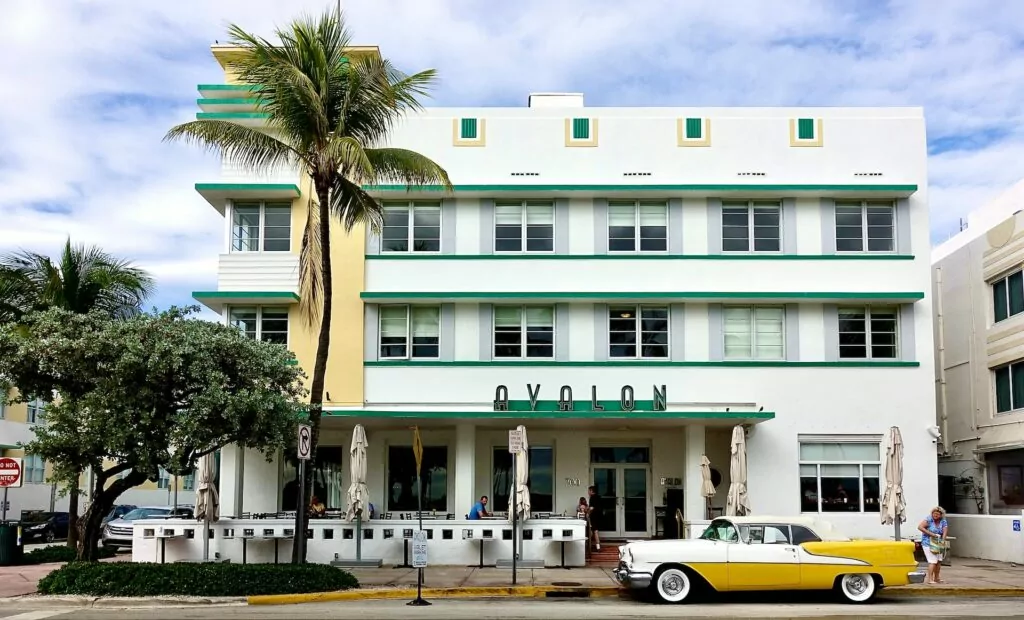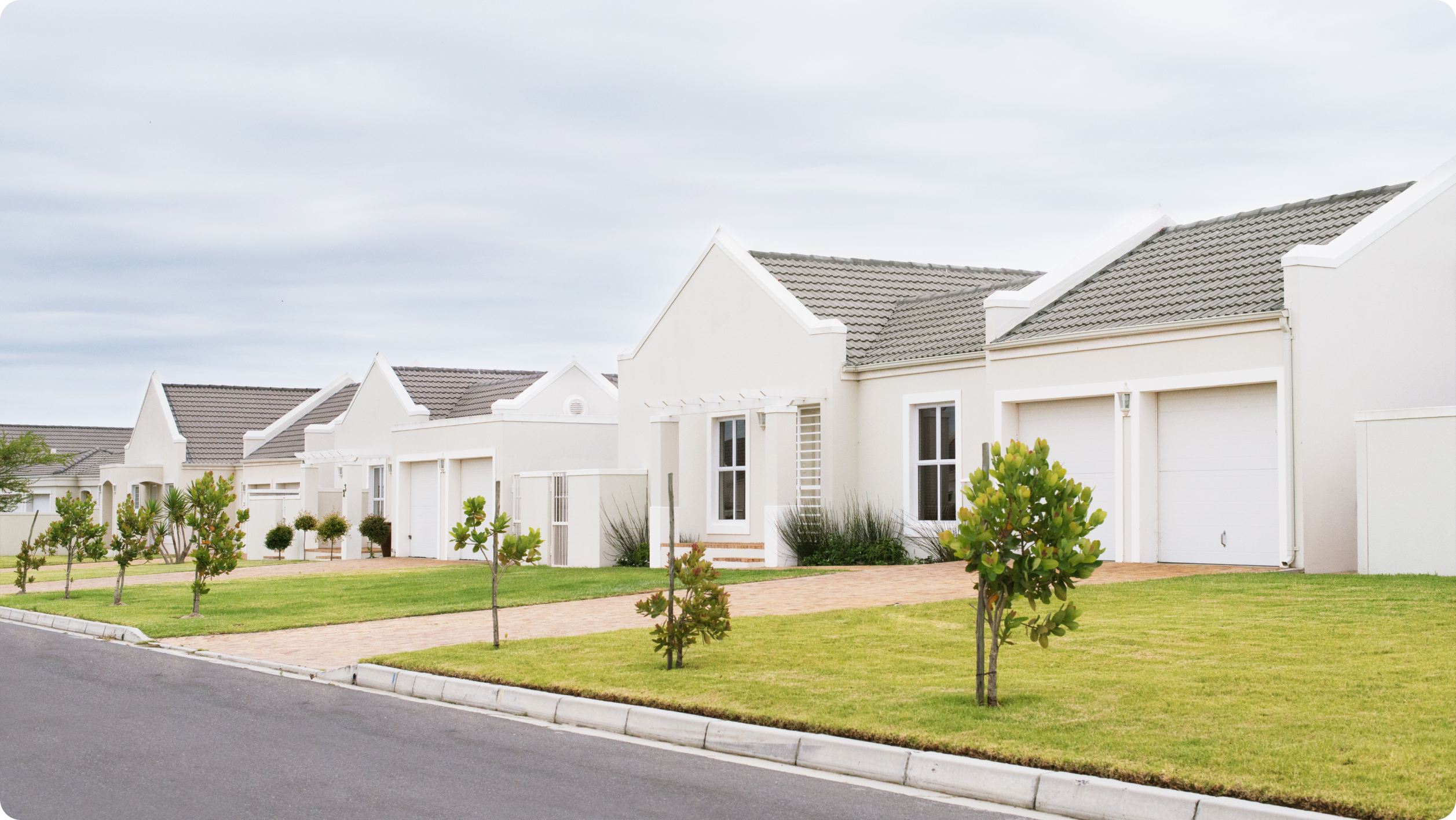Landlords and real estate investors in the Sunshine State have it made in the shade. In addition to no state taxes, Florida has favorable eviction laws and no restrictions on how much to charge for a security deposit (must be returned to the tenant within 60 days after moving out). No rent control is another perk since annual rent increases are already up by 55% in some areas.
If Florida sounds like your path to financial freedom, keep reading for a full breakdown of Florida rental loans, including how the length of mortgage on rental property can impact your cash flow, investment strategy, and long-term returns.
1. What Are the Best Rental Markets in Florida?
As a result of rapid population growth, Florida home values are up 81.7% over the last five years. These trends are shifting demand to the rental market and holding occupancy rates at 93%. Even though the entire state is red hot with real estate investments, the best markets for Florida investment properties are Sarasota County, Miami, Jacksonville, Tampa, and Orlando.
2. Personal Loan for a Multi-unit Long-term Rental Property
Just like there is plenty of fish in the sea, there are many types of rental property loans for Florida real estate. Understanding the ins and outs of each loan is the best way to keep more money in your pockets (and your portfolio).
Fannie Mae and Freddie Mac Loans
What this loan is for: Purchasing a primary residence, second home, or investment property for long and short-term rentals. Especially when paired with property management software for short-term rentals to streamline operations and maximize returns.
-
Minimum down payment: 3%
-
Maximum term: 30 years
-
Payment terms: Monthly principle + interest + insurance + property taxes
-
Maximum loan amount: $1,244,850
-
Minimum experience: None
-
Minimum credit score: 620
Fannie Mae and Freddie Mac are federal government-sponsored enterprises (GSEs) that buy and guarantee mortgages issued by lenders. These loans can be fixed or adjustable over 15, 20, or 30 years. Loans that meet the requirements set by these companies are also referred to as conventional or conforming loans.
Fannie Mae and Freddie Mac loan requirements:
-
Credit score of 620 (fixed rate) or 640 (variable rate)
-
Down payment starting at 3% (some restrictions apply)
-
Cash reserves for two to six months of mortgage payments
-
Debt-to-income ratio of 36% or less (up to 45% in some cases)
-
Private mortgage insurance (PMI) (0.1%-2% of the loan amount)
The Federal Housing Finance Agency (FHFA) sets conforming loan limits by county. You can borrow up to $647,200 for single-family homes and $1,244,850 for multi-family properties.
Most lenders require a minimum down payment of 5-20%. Fannie Mae and Freddie Mac offer programs with down payments as low as 3%. These options are only available to first-time homebuyers purchasing a primary residence. You can rent the home for half the year so long as it complies with the 183-day rule.
FHA Loans
What this loan is for: Purchasing a primary residence with up to 4 units to be used as a rental property after one year.
-
Minimum down payment: 3.5%
-
Maximum term: 30 years
-
Payment terms: Monthly principle + interest + insurance + property taxes
-
Maximum loan amount: $1,867,275
-
Minimum experience: None
-
Minimum credit score: 500
An FHA loan is a government-backed mortgage insured by the Federal Housing Administration. FHA mortgage terms are generally 15 or 30 years with fixed interest rates. Since banks aren’t bearing the risk of default, it’s easier for applicants with low income and limited rental property cash flow management experience to qualify for an FHA loan.
FHA loan requirements:
-
Credit score of 580
-
Downpayment of 3.5% (10% for credit scores between 500 and 579)
-
Debt-to-income ratio less than 43%
-
Payment-to-income ratio no more than 31%
-
Loan-to-value ratio lower than 96.5%
-
Upfront MIP payment (1.75% of the loan amount)
-
Annual MIP (0.45% to 1.05% of the loan amount)
-
Pass an FHA appraisal
Florida loan limits on a single-family home with an FHA mortgage are set at $420,680 in low-cost areas (the “floor”) and $970,000 in high-cost counties (the “ceiling”). Limits on multi-unit properties can reach $1,867,275. Florida FHA loan rental rules require the purchased property to be your primary residence for at least one year. You can live in one unit and rent the others to start earning rental income right away.
Private Money Loans
What this loan is for: Short-term loans to purchase or refinance an investment property for resale or renting.
-
Minimum down payment: 25% (average)
-
Maximum term: 12 months (flexible)
-
Payment terms: Monthly installments or lump sum
-
Maximum loan amount: 100% financing
-
Minimum experience: None
-
Minimum credit score: None
Private money loans are directly funded by an individual (called a private money lender) instead of a bank or traditional mortgage broker. These loans can be useful if you don’t have the credit or equity for conventional Florida rental loans.
Private money loan benefits:
-
Flexible terms: You can negotiate loan terms for a flexible repayment schedule (typically 6-12 months), waived fees, or lower interest rates.
-
Quick approval: Private money loans can close in days compared to weeks or months for conventional loans.
-
Diverse properties: Eligible properties include single and multi-family homes (1-8 units), townhouses, condos, SFR portfolio rentals (up to 200 units), and commercial or mixed-use buildings.
Considering private loans carry more risk for lenders, down payments are typically between 25% and 30%. Interest rates also tend to be higher than a traditional loan but cannot exceed 18% for private loans in Florida. Lenders will secure the loan with a lien to foreclose the property if you default on payments.
Hard Money Loans
What this loan is for: Short-term financing to purchase and flip distressed properties for a profit.
Minimum down payment: 25% (average)
Maximum term: 2 years (flexible)
Payment terms: Monthly interest + principle (installments or balloon payment)
Maximum loan amount: 75% loan-to-value (LTV) ratio
Minimum experience: None
Minimum credit score: None
Hard money loans offer short-term financing backed by a “hard” asset, such as real estate. These loans are issued by a lending company or investor group to bypass credit checks and strict requirements that come with conventional mortgages.
Hard money loan benefits:
-
Fewer requirements: Approval is based on property value and cash flow rather than your income and credit history.
-
More liquidity: Hard money loans make it easier to leverage your own cash to stay more liquid and spread out the risk.
-
No penalties: There are no fees to pay all or part of the loan early like traditional mortgages.
Hard money loans make the most sense to cover fix and flip loans for reselling Florida real estate within a short period of time (often one year). Since the property is used as collateral, loan-to-value (LTV) ratios are on the low end of 50-75%. This means you will need enough cash reserves to make a down payment of 25% or more.
Commercial Real Estate Loans
What this loan is for: Financing commercial spaces or residential investment properties with more than 5 units.
-
Minimum down payment: 10%
-
Maximum term: 30 years
-
Payment terms: Monthly interest + principle (installments or balloon payment)
-
Minimum experience: Registered business owner for two years
-
Minimum credit score: 680
Commercial real estate (CRE) loans are issued to business entities to purchase or refinance commercial spaces like offices and apartment complexes or residential investment properties. Lenders secure these loan options with a lien and usually require the property to be 51% owner-occupied.
Commercial loans in Florida:
-
Conventional Loans: Bank loans with terms ranging from 5-30 years and interest rates as low as 3%.
-
SBA Loans: Government-backed loans up to $5 million over a maximum term of 25 years.
-
Permanent Loans: First mortgage on a commercial property with a minimum term of five years and some amortization.
-
Blanket Loans: Financing for multiple properties rolled into one loan with a single lender.
-
Bridge Loans: Short-term loans up to 90% of the purchase price over 6-36 months.
While some commercial loans can last 30 years, terms generally range between 5-10 years with an extended amortization period. For example, a 30-year amortization period on a $1 million commercial loan at 7% over seven years works out to $6,653 per month, followed by a balloon payment of $918,127.

3. How To Get a Loan in Florida?
The approval process to get rental property loans for Florida real estate is relatively straightforward. Though requirements vary from lender to lender, you generally must meet these criteria:
Down payment of 15-20% or higher
Credit score of at least 620
Debt-to-income ratio below 36%
Six months in liquid reserves (cash or assets)
W-2s and tax returns for two years to verify income
If you meet a minimum credit score of 680, you may qualify for investment property loans up to $2 million with Lendency. No income verification is required, and you will receive funding in as little as ten days.
4. What’s an Example of a Rental Loan in Florida?
Let’s say you buy a newly constructed three-bedroom single-family home in Tampa, Florida, listed for $280,000 (median house price is $420K). The average rent for this property type in the surrounding area is $2,300.
Purchase price: $280,000
Loan amount: $224,000
Interest rate: 4.5%
Monthly payment: $1,134.98
Monthly HOA fees: $0
Closing fees: $8,400
Cash needed to close: $56,000
Assuming you put 20% down and get a 30-year fixed rental property mortgage at 4.5% with Lendency, your monthly mortgage payments will be $1,134.98. According to our rental property calculator, this investment will earn $55,766 in net cash flow over five years and a cash-on-cash return of 15.08%.
Annual gross income: $23,331
Annual net cash flow: $9,771
Capitalization rate: 8.33%
Cash on cash return: 15.08%
Final Thoughts
Real estate investing can be a risky venture, but Florida rental properties offer the potential for a big payoff. Take the time to compare Florida rental loans with your upfront and long-term costs to see how each one impacts your bottom line.
Learn more about being a Florida landlord with our Florida Real Estate Investing Guide.







